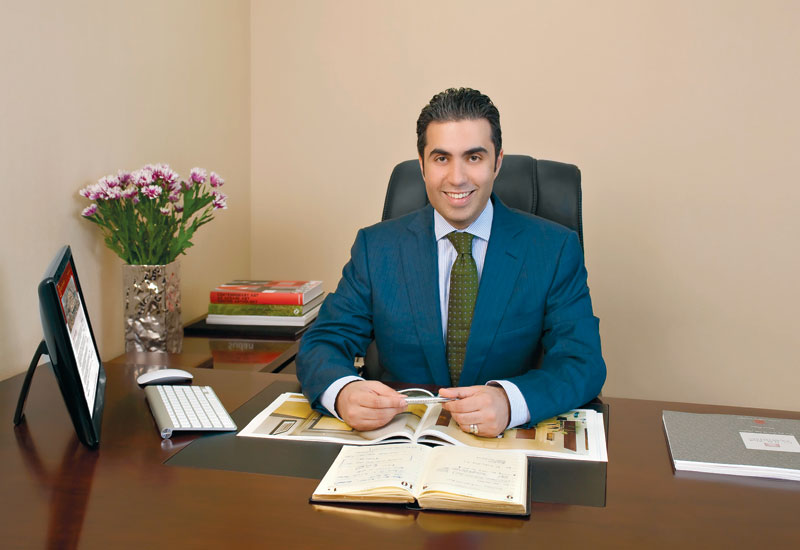 Mohammed Asaria, co-founder and vice president of Range Hospitality: People want to buy into Karbala.
Mohammed Asaria, co-founder and vice president of Range Hospitality: People want to buy into Karbala.
Range Hospitality’s vice president Mohammed Asaria talks exclusively to Hotelier Middle East about building a hotel in Iraq and the need for ongoing investment into religious tourism
Range Hospitality, which was created last year by Mohammed Asaria, Munaf Ali, Ali Al Nemer, and Alykhan Karmali, has announced it is developing its first hotel in the Iraqi city of Karbala.
Scheduled to open in 2013, plans for the Iraq hotel reflect the group’s strategy to cater to the Muslim market by establishing hotels in places of religious significance.
But given the instability of Iraq, is it viable to open a hotel in this destination? Range Hospitality vice president Mohammed Asaria certainly thinks so, citing Karbala as a city which has a particular draw for Shi’a Muslims.
“The Wall Street Journal thinks there are 18 million pilgrims going there in the high season,” says Asaria. “I don’t think it’s that high to be honest, but even if you halve it, that’s still quite a significant number of pilgrims going there over a six-week period.”
Couple the demand with the dominance of mid-range and budget hotels in Karbala, and Asaria believes that the market is crying out for something different.
“There are lots of two-stars and smaller hotels, but there isn’t anything of this scale or this quality there. I mean think Makkah 50 years ago,” he says.

Advertisement
“When I go in the peak season I have to share rooms with other people at my organisation because there are just no rooms available. People who aren’t able to get hotel rooms may even sleep on the streets. A few weeks back there was a shortage of taxis to and from Karbala, and people were making serious walks to get there, because this is the magnetism of the place.”
Magnetism there may be, but building a hotel anywhere in Iraq comes with a different set of considerations to building a hotel elsewhere in the Middle East. Security in particular takes on particular significance — people may well flock to Karbala in its peak season, but if they do not feel safe where they are staying, they are far less likely to return in future.
“We have got security consultants on board who have been instrumental from the design stage all the way through to actually implementing the security services needed,” explains Asaria.
“The security systems we are putting in place are going to be retractable because it’s in everyone’s hope that Iraq becomes a lot safer and then you won’t need all of the protections that are required on day one, but initially we have to be extra vigilant because we have a responsibility when people stay at our property to protect them,’ he adds.
And although the security situation in Iraq adds complications to the hotel opening process, the existing number of travellers currently prepared to make the journey to Karbala is an encouraging sign for Range Hospitality, which is developing the property based on a model of fractional ownership.
“This is a mix, I have got 12 floors above ground — nine floors will be residences, three floors will be a hotel and there will be some shops scattered around the lobby and basement floor,” Asaria explains.
“This is based on the feedback we have had — people who come here want to have a piece of this town, people want to have a sense of belonging to this town and that’s the consumer or investor we are catering for,” he adds.
Despite Emirates airlines postponing commercial flights to Baghdad ‘indefinitely’, Asaria says that pilgrims will still be able to make their way to Karbala.
“For our business most of the pilgrims fly directly in to Najaf airport, which is about a 45-minute drive to Karbala — Air Arabia flies in there, Gulf Air flies there, as well as Lebanese and Iranian airlines— it’s an incredibly busy small airport and the security situation compared to Baghdad is quite different,” he says.
Range Hospitality is eventually planning to open hotels in Makkah, Madinah, Damascus, Mash’had, and Najaf, reveals Asaria.
“I’d say it’s achievable to have all doors open within five years. For example, we are negotiating in one of the other jurisdictions to buy something which is about 85% complete, so it’s a different strategy for each location,” he states.
And for the pilgrims prepared to sleep in the streets of Karbala, the launch of the hotel surely can’t come soon enough.








 Search our database of more than 2,700 industry companies
Search our database of more than 2,700 industry companies









